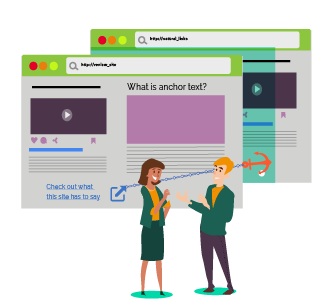This is a question you’ve probably asked yourself often: Should I invest in SEO?
To be honest, this is a legit question. We all know that to be seen and ranked highly on Google is critical to any online business’ success.
The ROI (returns on investment) of SEO is almost impossible to measure as it can take a long time to see the results
And like the air around us, if we can’t see it, it is easy to ignore and underestimate its necessity.
We will take a closer look at whether SEO is essential to achieve online marketing success.
What about all the other great marketing channels that are not SEO?
Should you be focusing your budget on social media, email marketing, or paid advertisements? What about conventional outreach methods, such as through networking events or trade shows?
Can all these things replace everything that SEO can do?
Why is SEO Worth the Investment
Compared to other channels, SEO (Search Engine Optimisation) tends to get a bad rap when it comes to seeing returns on investments.
Why is this so? I can think of a few reasons, but it’s mainly because SEO is a tough subject to understand (you need to understand both the technical and the marketing aspects).
The constant evolution of SEO is also tricky for most people to grasp. Most folks are still stuck in the old school of thought, where one needs to ‘game the Google system’ to reach number 1.
Other reasons include SEO being slow to generate positive results, and most people can’t see the benefits of SEO without the proper being able to measure the results accurately.
Here are 5 facts that’ll prove that SEO is worth your time and marketing dollars.
1. 89% of people use search engines to do on research businesses before they buy
When’s the last time you flipped the Yellow Pages to find the address of the nearby restaurant? Or research about a specific industry at the public library?
Thanks to Google, these days are long gone.
Even though there are people still using Yellow Pages and libraries, there are signs that show they are continuing to decline.
Many publishers are already moving from print to digital as they continue to lose profits as the internet continues to make them obsolete.
Today, search engines such as Google are the de facto solution to finding answers about anything under the sky.
Consumers depend so heavily on search engines to influence their purchase decisions. You really can’t afford to be not part of this driving force.
If you want your business, product or service found in search engines, without having to pay for the traffic, SEO is what you need to achieve this goal.
2. There are 40,000 Google searches per second
Let’s do some simple math. With 40, 000 searches in a second, that is equivalent to 3.5 billion searches per day.
When you start thinking about how much traffic Google is getting, it really puts into perspective how valuable SEO really is.
With 2 trillion search queries in a year, there are millions of opportunities on Google waiting to be tapped.
Whether you’re a small local business owner, or in charge of the marketing department of a global corporation, you just cannot ignore the fact that everybody is using Google, including your customers.
3. Up to 20% of Google’s daily searches are questions that have never been asked before
Some people may think that SEO has become a game that is oversaturated and dominated by top players.
This cannot be any further from the truth. The fact there is still new, never-asked-before questions waiting to be answered shows that there’s still plenty of SEO opportunities waiting to be found.
The key is to be able to identify what are these questions that nobody else is answering, not even your competitors.
In the past, SEO is about who can stuff the most keywords into their web content. This no longer works, thanks to Google becoming more intelligent than ever before.
You don’t need an enormous budget. You just need to know your stuff and know how to put it out there for people to see.
Today, SEO is all more about finding gaps in existing information and filling it with relevant and valuable information to satisfy the readers’ intent.
When you do this successfully, you will quickly climb the ranks of Google and reach the top of the mountain, beating everyone else.
4. Higher search engine rankings add credibility to your business
We already know that most people turn to Google before they decide to make a purchase.
Here’s another thing. Most web users — as high as 80% in some studies — don’t look at paid ads and focus only on the top search results.
Google users understand that the top results are the ones that are most relevant to their purposes, that’s why top Google positions are so highly sought after by businesses everywhere.
This also means that when a prospect is doing research on Google, they are way more likely to be pre-sold on what your business has to offer if you rank in the top positions on Google.
And since the way to the top is through providing useful and relevant content, once a user clicks through to your site, he will find himself more likely to convert to a buyer.
Having your business website ranking high on Google also gives a good first impression. It builds authority among consumers and allows them to build trust towards your business quickly.
5. Mobile audience have changed the SEO landscape
Back in the early 2000s, if you want to look up something online, you need to wait till you’re at home or in the office, in front of a computer before you can access Google.
Thanks to modern smartphone technology, our phones have become portable supercomputers. This means more people can now run Google searches from anywhere at any time.
This has given rise of the emphasis on location over generic types of SEO strategies.
If you are a local small business, this is great news because it means that people are searching for things at the exact moment they need, and they are ready to buy.
For example, somebody is in town for a business trip for the first time. Being unfamiliar with the local surroundings, he uses Google to find the nearest coffee shop.
All he has to do is type “coffee shop near me” into the Google app in his phone, and he has all the local coffee shop addresses at his fingertips.
As a smaller local coffee shop, because of your location proximity to the search user, you are given the opportunity to rank in town, over big brand coffee chains like Starbucks or Costa.
With local SEO, red-hot prospects can find you online quickly and in real-time, can become a paying customer on the same day he or she searches for you on Google.
Through investing in local SEO, you can put your local small business on the radar of people who are ready to make a purchasing decision quickly.
SEO vs. Other Marketing Channels
Let’s look at how SEO compared to other types of marketing tools available at your disposal.
Here are some of the common marketing channels today:
Social Media
Everyone knows that social media and even influencer marketing is one of the best ways to propagate your brand through word of mouth.
Social media is the channel of choice if you are going for a younger target audience of between 18-26-year-olds, as they tend to be much savvier and active on Facebook and Twitter.
Social media also allows you to manage your brand reputation more readily, as it gives you a chance to turn the tables by refuting or even complimenting criticism in real time.
But social media has its limits too, mainly regarding reach. For one, most people go through search engines to do product research, not Facebook to make an informed purchase decision.
Secondly, compared to social media, there more tools to help you, such as keyword tools, available that can tell you accurately which keywords are worth the time and effort to target.
While all these may change as social media continues to grow in presence in nearly every aspect of our lives, as of right now SEO marketing is still the better strategy of the two.
For decades, email has been the number 1 method to reaching online audiences.
Because it works as a form of permission-based marketing, no other channel comes close in 1-on-1 selling. If your business depends heavily on sale promotions, free trials, and discounts, then email is the way to go.
But to deploy email marketing strategies effectively, you need to first build up an email list that is made up of the right prospects.
And SEO is one of the key ingredients to list building. In fact, almost all email marketers rely on Google to funnel prospects towards their email signup forms. This makes SEO a critical foundation of their sales funnel strategy.
Paid Advertising
Using paid ads to drive traffic, such as through Google Adwords or Facebook Ads, is an excellent way to drive highly targeted traffic towards your business.
Unlike SEO, paid ads also allow you to measure your ROI accurately, and lets you tweak your advertising strategy quickly.
However, the number one drawback of paid advertising is well, money.
If you’re a business which doesn’t have a whole lot of advertising budget, paid ads will burn through your budget quickly. You might not even get to experience the rewards of paid ads because your ad budget has already run dry.
And this is where SEO really shines. Unlike paid advertising, you don’t need to be spending thousands of dollars just to see consistent results month after month.
In fact, SEO only requires you to make the initial monetary investment in high-quality content. Do it once, do it well, and you will reap the rewards months or even years after your initial investment.
While you will still need to continue to publish content on a regular basis, this is mainly to keep the content of your website fresh, creating a top-of-mind presence amongst your audience.
With a handful of well written, highly informative evergreen pillar content, you can still continue to draw traffic towards your website with very little to no financial upkeep.
Networking Events and Other Physical Outreach Efforts
Going to networking groups, speaking at key industry events can be extremely powerful in reaching your market, as you are physically present to interact with your target audience.
Being present among experts and leaders in your niche also establishes you as an authority, and this cannot be easily replicated online unless you are consistent with your online outreach efforts.
The problem with physical events is you need to be present. This can be an issue for people who don’t like to speak in public or even those who don’t enjoy being on the road away from family.
With SEO, you can multiply your reach easily across the millions of Google users. You can be anywhere at any time.
SEO brings your audience to your website, which carries your brand’s message and converts prospects into customers, even while you sleep. As long as your website is running correctly, there is zero downtime.
Final Thoughts
SEO is far from dead. The statistics clearly show that it’s still alive and well.
Most consumers today have already integrated the use of Google into their everyday life, including using search engines as their primary source of research before any buying decisions.
So in case you haven’t figured out by now – Yes, you need SEO to grow your business’ online presence.
That’s because to capitalise on all the traffic that search engines have to offer, you must be loved by Google. To be loved by Google, you must invest in SEO.
In fact, getting traffic from Google and other search engines has become a fundamental way to attract customers that it has become a bare essential for any marketing strategy.
So instead of worrying about whether you need SEO, think about how you can integrate SEO into your other marketing efforts.
Because SEO works well with almost any marketing channel today, you can always invest in SEO today, then move on to the next step, such as using paid ads or social media.







